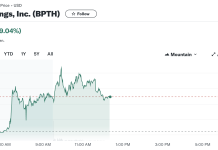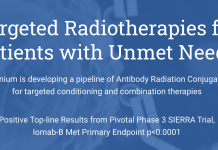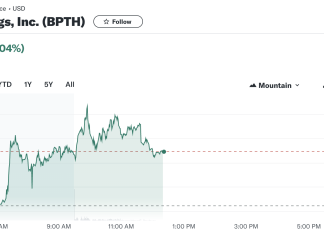Viridian Therapeutics Inc. (NASDAQ: VRDN) has announced the dosing of the first subject in phase 1/2 proof of concept clinical study for VRDN-001, which is a monoclonal antibody that blocks IGF-1 receptor using sub-nanomolar potency. For the therapy of TED, IGF-1R inhibition is a clinically established mechanism of action.
The study evaluated the safety, tolerability, and efficacy of VRDN-001.
The purpose of the Phase 1/2 study is to assess VRDN-001’s safety, pharmacokinetics, tolerability, and potential efficacy. The study will evaluate numerous indications and symptoms of TED, including proptosis – the bulging of the eyes that is distinctive of TED – and will include both healthy volunteers and randomized, placebo-controlled cohorts of TED patients. In the second quarter of 2022, the company plans to release topline statistics from the proof-of-concept stage of the study. Notably, the trial methodology enables the evaluation of more TED patient cohorts to see if other treatment paradigms give benefits over currently available treatments.
The company’s CEO and President Jonathan Violin said, “We are excited to initiate our first clinical trial of VRDN-001. This trial is designed to quickly assess the potential of VRDN-001 to offer a new option for patients suffering from TED, and to inform how we can optimize VRDN-001 development to best meet patients’ needs. VRDN-001 exemplifies Viridian’s patient-centric model of innovation that leverages proven biology and technology to efficiently craft medicines to meet the needs of patients and healthcare providers.”
The tolerability, safety, pharmacodynamics, and pharmacokinetic data from over 100 oncology patients who had previously received this antibody under the name AVE1642 inspired the clinical development plan for VRDN-001.
Viridian has second therapy, VRDN-002 for TED
Viridian is advancing new treatments for the treatment of serious underserved diseases by available therapies. VRDN-002, the company’s second product candidate, is a unique anti-IGF-1R antibody with half-life extension technology that is planned to be administered as a low-volume, subcutaneous injection. Notably, TED is an inflammatory illness that produces inflammation and fibrosis in the orbit of the eye, resulting in pain, double vision, and the possibility of blindness. Multiple corrective procedures to the eye muscles, orbit, and eyelids are frequently required in patients with severe illness.















